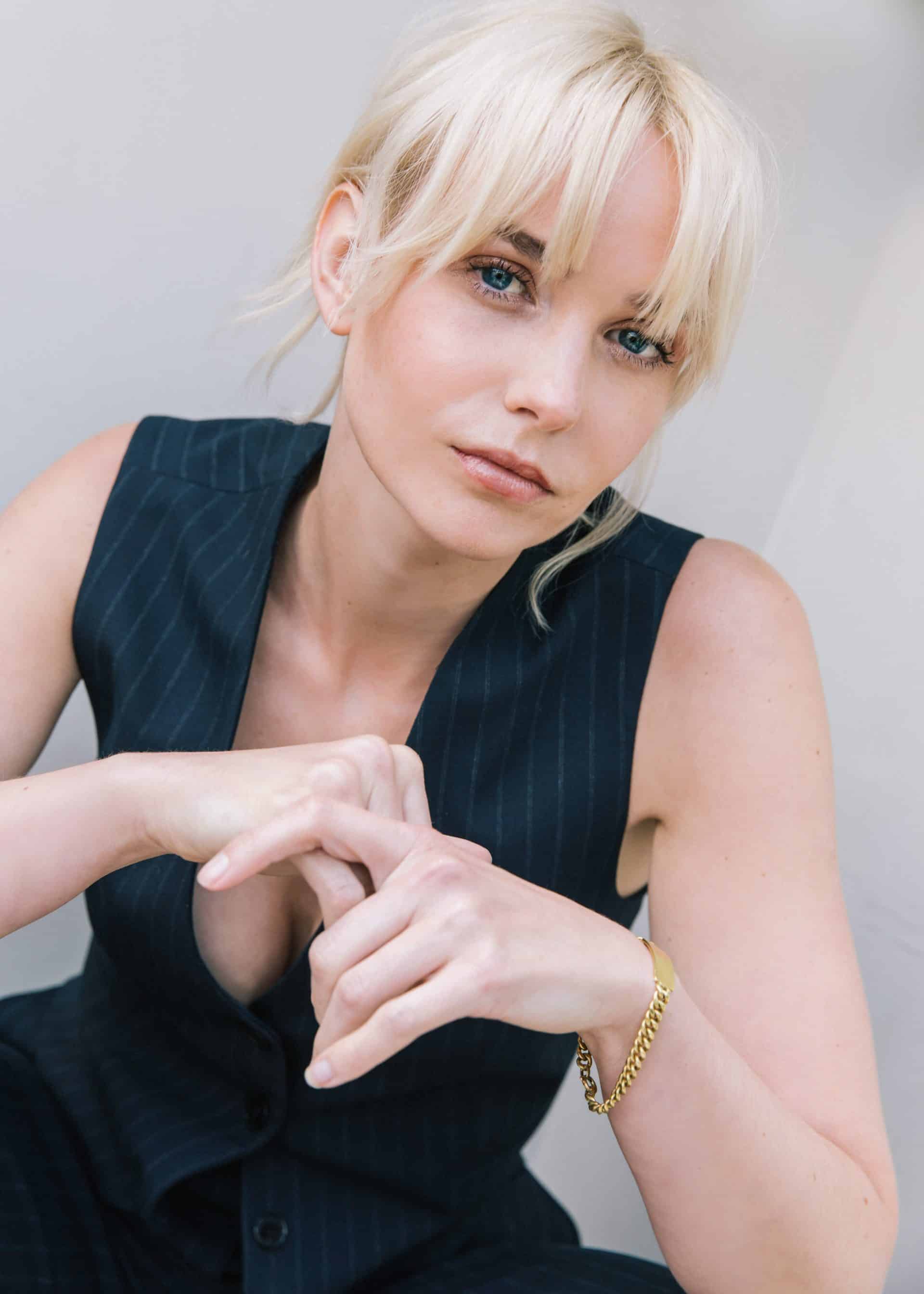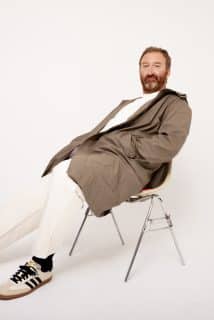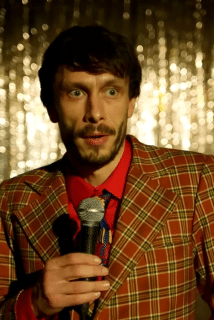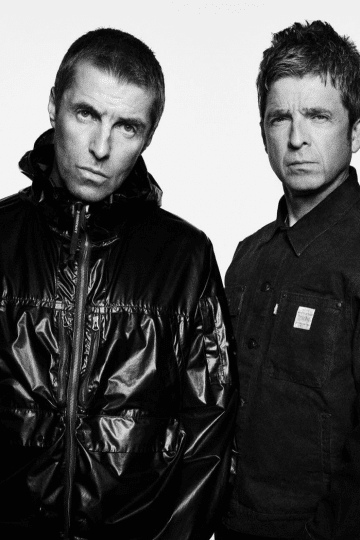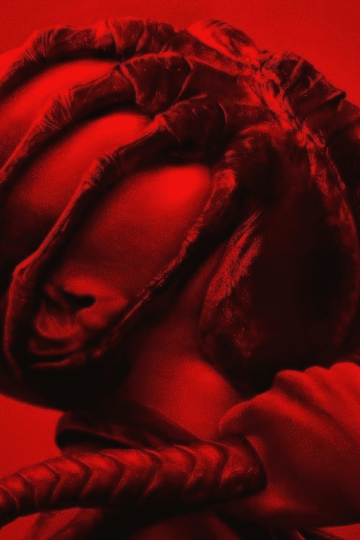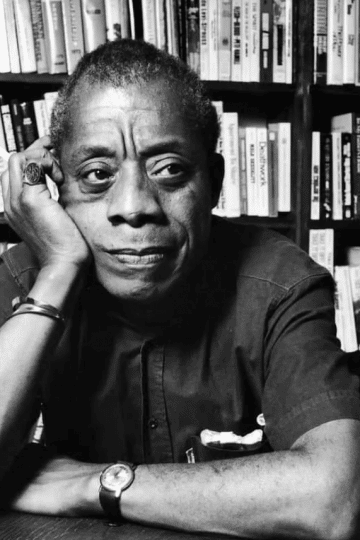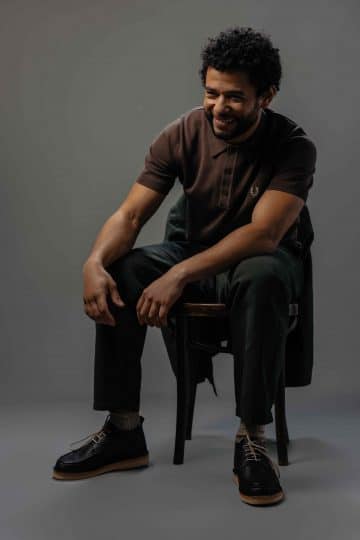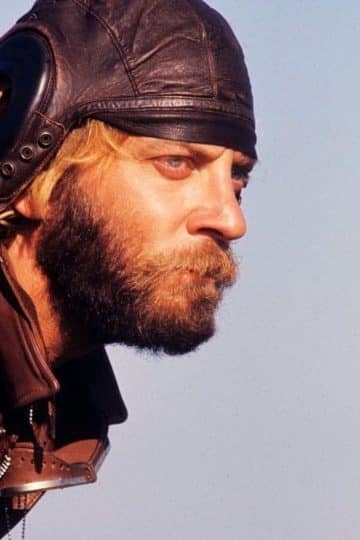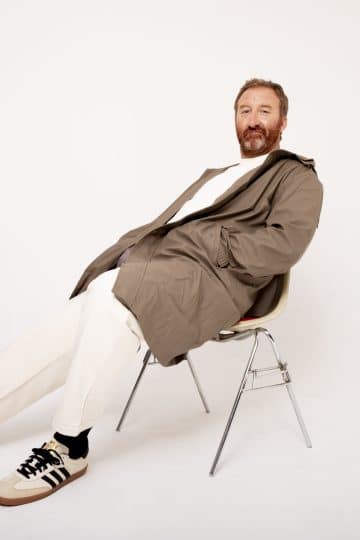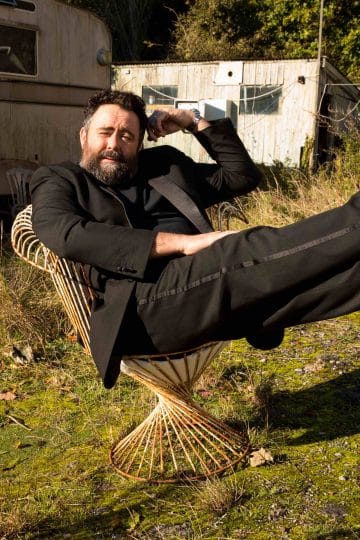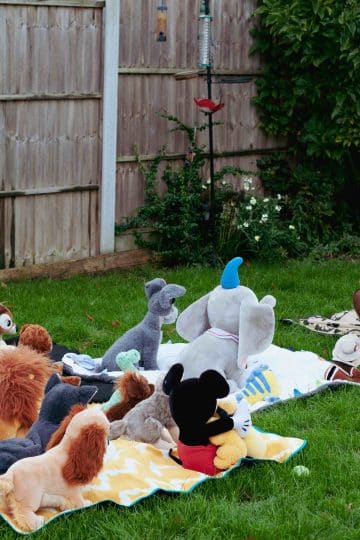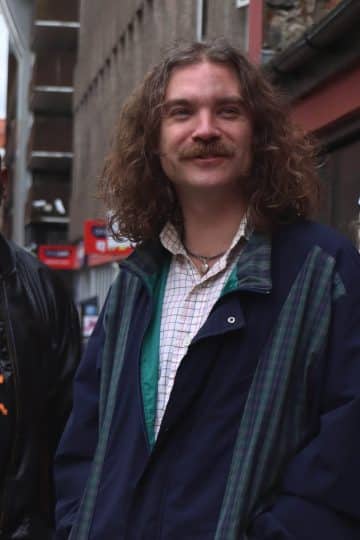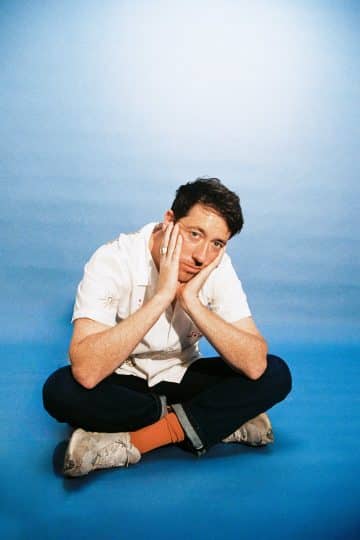Joanna Vanderham on Crime season 2
Culture
Joanna Vanderham talks to us about returning as Drummond opposite Dougray Scott in Irvine Welsh's Crime, mental health and acting, and learning how to pick locks..
Crime was one of our favourite show’s last year, Irvine Welsh’s TV prequel to his novel of the same name, starring Dougray Scott (who we interviewed) as DI Ray Lennox on the hunt of a child serial killer, with the help of his partner Amanda Drummond (Joanna Vanderham). The show felt like a rare thing in police procedurals: it broke new ground. In terms of character, toxic masculinity, gender structures, even stylistically in its depiction of trauma. Awards duly were shoved its way, a season two commissioned, yet it still feels like a cult show for those in the know, on oddity that thrives in the margins – which is the best kind of show there is. This new season acts as a sequel to the novel, and sees Lennox reunited with Drummond for another wild case that unveils strata of corruption – take it from us, it’s insanely good.
We managed to speak to Joanna about the new series, developing the character of Drummond, becoming pals with Irvine Welsh, learning to pick locks, therapy, and well, everything a Crime fan needs to know…
Congratulations on season two. When did you find out that you had it?
We’d wrapped on season one and didn’t know what was going to happen. And then before it aired, we got told that we were going to get season two. So that was exciting because I think in season one, Drummond is really set up to have an inner life that doesn’t exist in the police force, but you don’t really get to see that until season two.
Can you set it up for us?
Season two takes place a few months after season one has ended. Essentially, Crime season one is like a prequel to Crime the novel. And then season two is the sequel to Crime the novel. So we’ve got to imagine that Lennox went to Florida and had that whole storyline in the book and then he’s come back. When we see them being reunited, Drummond’s been promoted after helping solve the case from season one. She’s just a lot more confident in herself and she feels like she can kind of take up a bit more space in a very male dominated profession. When Lennox comes back, she’s been running the show for three months, and so there’s this dynamic of, ‘Oh, we’re not what we were, what are we?’ That sets the tone for the rest of the season, where they’re trying to figure out how they fit together again.
Then there’s also an incredibly complex crime that we’re investigating, which leads us all the way to the Home Office. It’s a real exploration of the social classes and how justice works for different people in the social stratas of Scotland. It’s Irvine. He’s not afraid to get political. He’s not afraid to kind of call a spade a spade. And I was just really chuffed that he was leaning into that even more in this season. It’s even more grotesque and it’s even more challenging, which I think is what he’s renowned for.
I like the way it goes straight in on the trans issue, which I’m sure a lot of people are very afraid to go into. It really works in terms of looking at the different levels of discourse and humanity, but just to go there is brave, to put yourself in the heart of it.
Yeah and I think there’s a risk that it becomes tokenism or that it’s just being talked about for the sake of it, but they’ve really avoided that. They’ve navigated it really adeptly. Obviously, they had a lot of consultants. Rebecca [Root], who plays Laura, was consulted. She’s got a really poignant speech at one point and she really got to contribute to what she wanted to say. I think what’s really beautiful about it is that it hasn’t been shoehorned in. Also, Crime, from my experience, seems to be being watched mainly by people who are fans of crime dramas and the conventional cop procedural, where usually what happens is a young, innocent woman is brutally murdered and men hunt down someone. That’s just not the plot of this at all. I think that’s really refreshing, that we’re not seeing more violence being inflicted on women and you don’t actually see the violence taking place on screen. It’s not about the audience waiting for the detectives to figure it out because they’ve already put two and two together. The plot is always going to be ahead of the viewer. I just feel like it’s really unique.
It’s always very unpredictable. That first series, you didn’t know where it was going to go. And the relationship that you have with Ray as well is quite crucial to that. It’s not the usual sort of buddy cop thing, is it?
No, not at all. And I think it was really fun getting to know Dougray and work with him. He really wanted Drummond to have as much of a say. In season two, that happens a lot more. She’s really driving the story and their dynamic does shift. I think one of the reasons why it doesn’t feel like something you’ve seen before is probably because Irvine has said in the past he doesn’t really watch TV, so he’s not been subconsciously thinking, ‘this is how it’s done’. He’s just writing the show that he wants to see. And that’s a real testament to Tony Wood at Buccaneer and the whole team there because basically they wanted to create a production company where writers and creators were in charge of that and that they weren’t being told, ‘Well, it has to tick these boxes’. Apart from being a certain length, Irvine basically writes the show that he wants to exist, which I think is really cool.
What’s Irvine like?
He’s a lovely man. I was super starstruck when I first met him. He’s much taller than I imagined. I introduced myself like he didn’t know who I was, but obviously he’d been involved in the casting process and he’d been watching the rushes. He came to set and I was like, ‘Hello, I’m Joanna’. And he’s like, ‘Aye, I know.’ He’s actually become a good friend. He’s also a DJ and I’ve been to his set in London one night and he came to my birthday party. I’ve reined in the fangirl a little bit, but I do sometimes just sit there and be like, ‘Tell me about this, Irvine.’ I think he likes that! No, he’s a good man and he’s really excited about it. There’s talk of a season three already and he doesn’t stop working. I’m excited to see what he can come up with next.
He’s always been interested in looking at men all the way throughout his career, even in Trainspotting, you had like Renton as a character, quite a sensitive character, vegetarian, and quite empathetic within this mad mix of all other people. Irvine’s always looking at the different aspects of men coming together, isn’t he?
Absolutely. And I think he’s a real kind of ally for the feminist movement, because he’s not afraid to call out toxic masculinity. He’s been doing it since before anyone was ever really talking about it or it even had a name. He was driving the conversation around the fact that men don’t communicate with each other is killing them. The way that the men in Trainspotting talk to each other, but they never say what they’re feeling and what they’re thinking, what they’re going through. They say it to the female characters. That’s really fascinating. And ultimately, it’s such a poignant ending, isn’t it?
I actually spoke to Irvin about heroin addiction and he said something about that you have to have a reason to want to keep doing it. And a lot of his characters, the reason is that the rest of their lives are so unhappy. That’s what he was witnessing and growing up with. And that’s why it feels so visceral and so true, because it’s based on real experiences. I do think that he’s brought that conversation to Crime. Definitely in season one there was a lot of looking at men in the workplace and as police officers. Drummond was fighting that misogyny, but she didn’t really have the tools, just say something ineffective. It might have been a witty one-liner, but it probably didn’t make systematic change. Whereas in season two, she’s in a position where she can actually action her desire to make change.
What else do we learn about her life?
I think we learned that women don’t have it all together either. Her private life is definitely a bit of a mess. She’s got these three cats that she lives with, and she admits that she kind of hates them being there because they remind her how lonely she is. But I think it’s nice to have another living, breathing thing around. They’re around death so much.
She makes some awful mistakes in season two, and it was like watching a car crash in slow motion. Every time I got a new script, I was like, ‘Really?’
I got to do some cool stuff. I learned how to pick a lock, which was fun. I did actually do it, and they’ve used the close up where I’m, like, screwing my face and my tongue is sticking out of my mouth. Thanks guys. Thanks for that one. But that’s the thing. They make everyone, not grotesque, but they push everyone. No one is supposed to be all good or all bad. That’s what real life is like. I think what you’re seeing is people striving to understand how to live and how they want the world to look. And deal with their own history, I guess.
Obviously, trauma was a big part of first season, and those past entanglements that you can never quite sort of get away from.
Yeah, totally. And also familial dynamics, father-son relationships really heavily come into season two as well. Dougray plays that beautifully. It’s so emotional to watch, but it’s you can’t help but laugh even when it’s sad. I think that is Irvine at his best.
I think it definitely deals with some big themes. It’s interesting that you bring up past trauma because that’s very much a theme, but it’s not necessarily any of the characters that you’ve spent time with in season one.
Are you still figuring out the character as you go on?
With Drummond, I did a lot of prep for season one. I did so much research into the type of education she would have had, the type of upbringing, where she grew up, what steps she would have taken in her career to be at this point. I just did intellectual research, because Drummond in season one very much is in her head, she’s not as emotional as Lennox. But then by season two, I think I got to have a bit more fun, and I think Drummond is pushed further. So it as more like, ‘oh, I get to do this now,’ and the character came back a lot quicker because she was already there. And also her vernacular, her specific way of speaking, that helps. Like there was this scene when we’re down a dodgy alleyway and I’m speaking to a sex worker and I say something really prim and proper. I can’t remember the line, but I’m just so awkward. We didn’t have a huge amount of time, and Dougray was like, ‘Oh, that sounds really awkward. Are you sure that’s the right line? Should we say it like that?’ And I was like, ‘I think it’s because Drummond’s not very good at this. She’s not very good at the instinctive side of stuff.’ And he was just like, ‘Oh, yeah, absolutely. No, that’s exactly what it is.’ Then we shot it like that. We get to see Drummond move away from intellectualising things to acting more impulsively and more emotionally – and it doesn’t really bode well for her, to be honest.
And is it quite an intense set or does it depend what you’re filming?
So the days when we’re all in the office together are hilarious because a lot of that it’s not very emotional, it’s a lot of moving the plot forward. You can, as a company, be a little bit more light hearted with each other. For example, David Elliott, who’s joined us this season, I would turn around and he would be pulling faces and making rude hand gestures. The company itself is just so easy to get on with. When we were filming in a studio my dog could come with us.
Out on location, if it was just me and Dougray, we would have a really easy day. He was honestly such a dream to work with. We found a rhythm with each other now, I think, kind of without even having to talk about it. We know whether the other person wants to have a chat or needs to concentrate on the scene. In season one, I was probably less good at judging, but I would check with Dougray to see if he wanted me to talk to him or not. Usually just to say something completely inane. But now I think I know whether he wants me to talk to him or not.
Whereabouts did you grow up?
I grew up in Scone, which is just outside Perth. Scone is famous because of the Stone of Scone where kings and queens used to be crowned. I mean, it was pretty idyllic. It was a rural little village. Basically I had two really good friends in primary school and I found out that they were both going to the drama club and I was jealous. I was like, ‘Well, I’m going to go to the drama club.’ I got there and I was like, ‘this is the best thing ever. You just get to run around and everyone has to look at you and it’s wonderful.’ So I got the acting bug at age seven. In Perth, there’s a drama club, so I went to that as well. Then I did the Scottish youth theatre for two years in a row, then National Youth Theatre, and then I went to drama school.
Although I’ve still not forgiven my high school drama teacher because she didn’t cast me as Juliet in the school play. Not only was I not Juliet, I was like, walk on person number three. I went and looked at the board and I was like, ‘oh, that’s disappointing.’ And then it was everyone else’s reaction, ‘Oh, my God, Jo!’ And then I couldn’t stop crying. I think I went home early.
Well, look at you now. Do have an agenda in terms of your career? Are you consciously trying to look for those things that are going to push you?
Yeah, I’ve been turning down a lot of stuff, which is scary, but also I feel like is really necessary because what do we have in this life? We have our time. And when I work on something, I want to give it my all and I want to play characters that demand that. I feel like I’m ready for those roles. I think what attracts me to a role is feeling like I haven’t played that person before, and the company that I would be with, because you have to spend so much time with them. With the character, just are they challenging? Are they interesting? Does the show in and of itself make a comment on the way that we live our lives? I think those are three things that are prerequisites for me taking a role now.
With so much TV being made now, is there kind of plenty of that interesting stuff around?
Yeah the strikes are on at the moment, so everything has stopped. But before that I think we’ve been seeing some really interesting shifts. I think women are being written in a way that they perhaps haven’t been before. I think women are also behind the camera, writing, producing, directing, and even as cinematographers. I think that’s really exciting. That’s not to say that I haven’t loved working with male teams, because most of the time when I find a character that ticks all those boxes and it’s been produced by a male team or there’s a male director, they are also excited about showing women in that way. You do end up having a really collaborative, interesting time.
I love working with directors because they see you in a way that you can never see yourself, so they can have these insights into your character. Often when I’m playing someone, I feel like I’ve internalised them, or rather, I’ve externalised the parts of myself that are the most like the character. And so when a director has something to say, it’s a comment on a part of me.
Do you get a rush from doing certain scenes? I’m thinking of like when you’re dishing out some one-liner putdowns to the horrible men, there must be some kind of crossover to you beyond the characters?
That was great. I enjoyed that. Yeah, for sure. As long as you feel like you delivered it like you wanted to, there is definitely a rush. Sometimes what’s interesting is that you might be feeling all the emotions or whatever you’re supposed to be feeling, and the director will say, it’s not quite coming across like that, or can you try it differently? Because of the whole arc of the story. That’s their job, is that they have everything in mind. Whereas you might just have your character or you might just be enjoying that scene – you’re like part of an orchestra, they’re conducting it.
But, yeah, definitely, otherwise you’re just standing there saying words in someone else’s clothes. Yeah, you get a buzz out of it. It’s the best job ever.
In terms of your mental health, quite a tricky industry. A lot of demands, personally on you.How do you kind of look after yourself?
I have done various different types of therapy and will again, probably. I think I often forget that after I’ve played a character for some time, I can hang on to how they feel and anything that they’ve been through. I find it quite hard to come back to reality because I will spend as much time as I have leading up to the role and even during it doing visualisations or listening to music to get me into a certain headspace or research. The first season one of Crime, it was reading all about child murderers, and then we wrapped and I just did absolutely nothing. But then months later, I was like, ‘Oh, God, I’m so upset. I’m so sad’. And then I was like, ‘Oh, no, these aren’t my emotions. This isn’t how I actually kind of feel.’
I think of therapy as like washing your brain, just sponging it out. I meditate. And I have come to a point where I now think of exercise as more for my mind than for my body. And I think that’s really helped.
I have a very understanding partner a very supportive person in my life that gets it. Once when I was filming something, I came home and I was crying and he said, ‘What is it?’ And I think I just looked at him and I said that same thing: ‘These aren’t my emotions.’ That was five years ago but even now, he’ll check in and ask, ‘Are these your emotions?’ For him to have heard that properly, I feel very fortunate.
Finally, why should people watch Crime season two?
What else are you doing? No people should watch season two because there’s nothing else like this on telly. It’s Irvine Welsh writing a TV series with Dougray Scott in it. It tackles some really big themes, but it’s funny and it’s dark and it’s kind of glorious to watch. And this episode, a lot of people said they couldn’t watch season one because they felt like they had kids that age and they didn’t want to, it was too close to the bone. But I honestly think, and this is so naughty, the crime that takes place this season is very watchable. I’m saying nothing more, because otherwise people are going to come for me.
Cue the most grizzly scenes you’ve ever seen in your life.
Maybe I need to go back to therapy.
Crime Series 2, available on ITVX and STV Player, Thursday 21st September
Trending

Join The Book of Man
Sign up to our daily newsletters to join the frontline of the revolution in masculinity.



